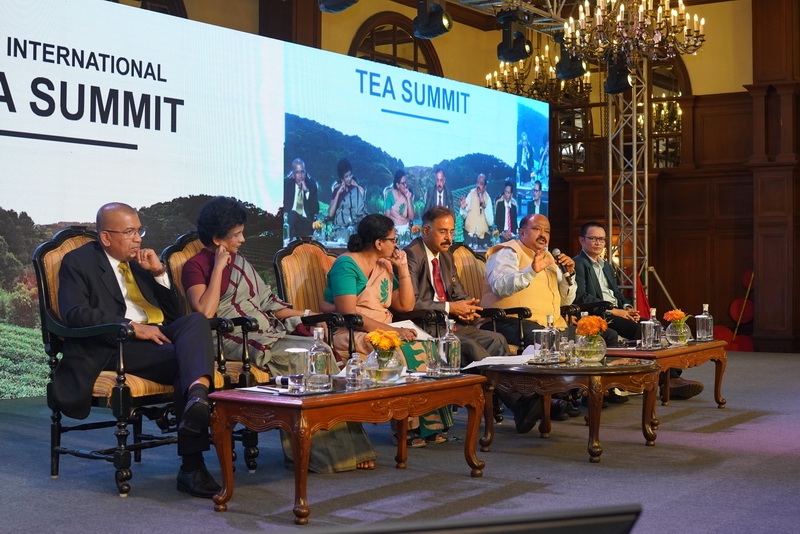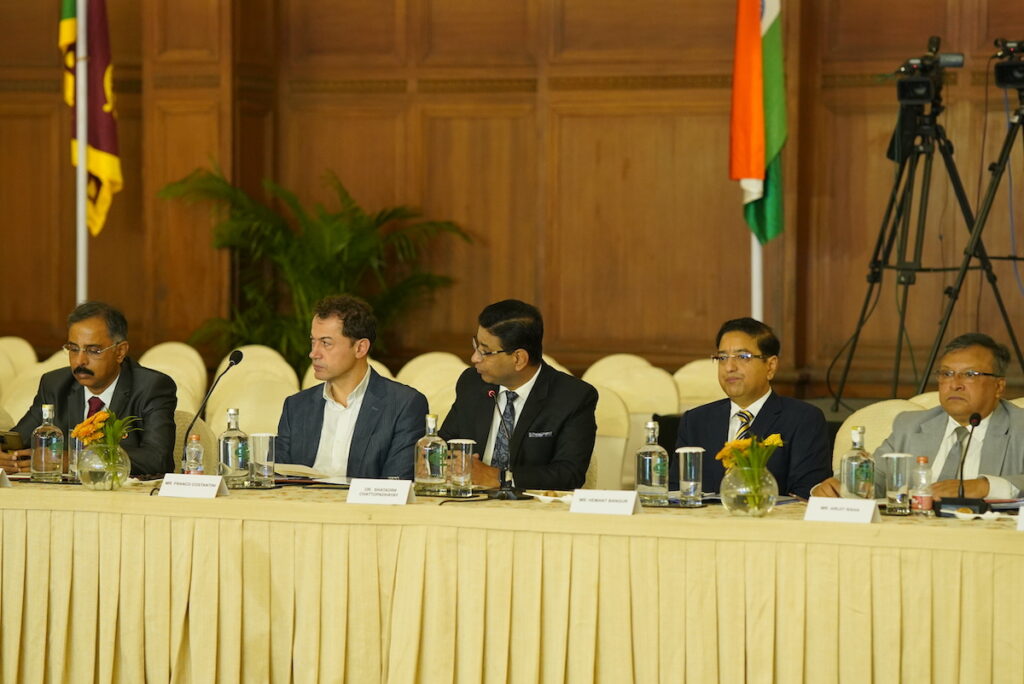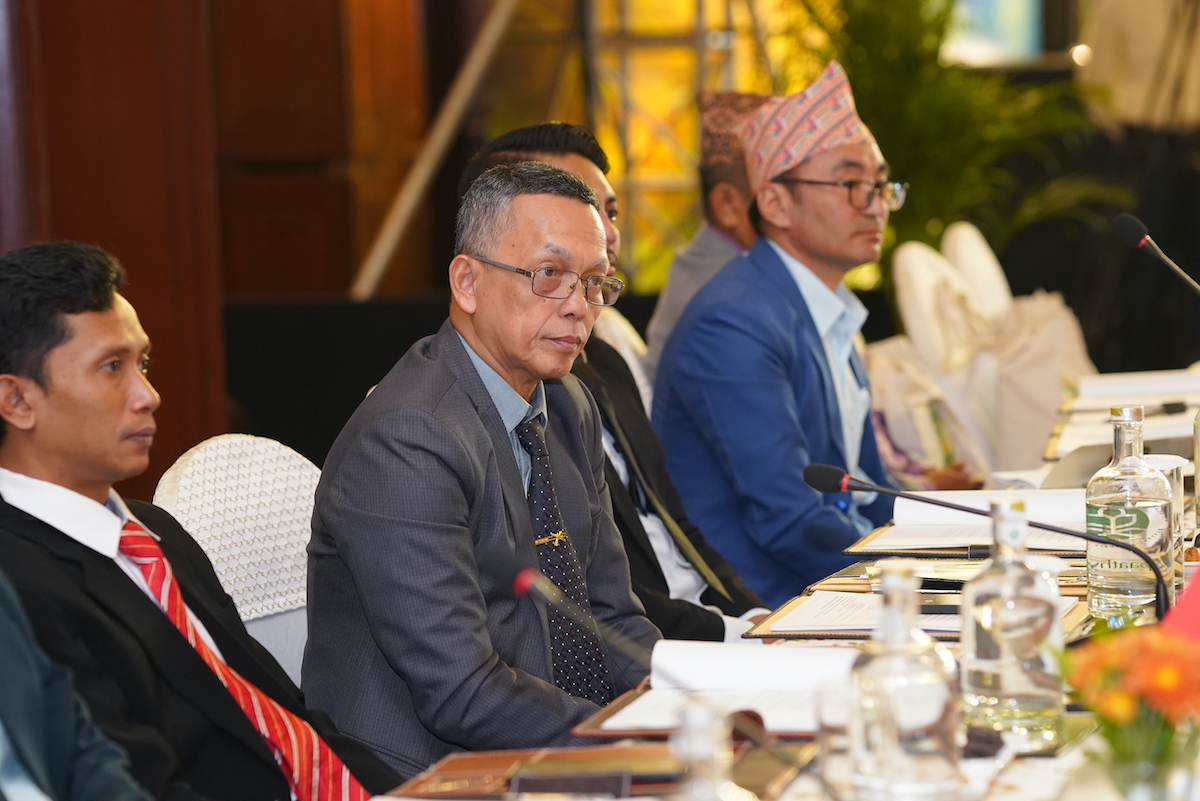Members of the Asia Tea Alliance at the 2024 annual meeting where the focus was on growing consumption and boosting the popularity of tea.
The Asia Tea Alliance Summit, held November 2024 in Kolkata, brought together tea industry leaders, representatives from apex associations and tea boards from across Asia’s largest tea-producing nations.
Established in 2019, the Asia Tea Alliance (ATA) is a confederation of tea organizations from six leading tea-producing and consuming countries in Asia, including India, China, Indonesia, Bangladesh, Nepal and Sri Lanka.
At a time when the tea supply chain faces global oversupply, and saturated markets in developed regions, like Europe and the USA, members of the ATA emphasized the need to promote tea consumption in countries with low per-capita intake.

Potential in Africa
The ATA has noted that Africa is a significant tea-producing region, but that tea consumption often lags in African countries.
While consumption is an issue, generic tea prices in Africa have also been driven lower as major country producers like Kenya are grappling with an oversupply crisis. Additionally, most African production is directed toward exports, which leaves a minimal surplus available for domestic markets.
To address this imbalance, Asia Tea Alliance (ATA) members discussed the importance and the need to create and develop more markets in Africa while boosting consumption of tea across the continent.
Hemant Bangur, Chairperson, Asia Tea Alliance remarked that, “Our slogan is: ‘This time for Africa,’ where there is a huge untapped potential.”
“In Africa, we need to evolve a strategy which works to make tea as a popular and the most pleasurable drink at the lowest cost as compared to either coffee, alcohol or any other variations,” said Bangur.
Tea is a cornerstone of rural economies in Asia, but the challenges we face today require collaboration and innovation. Formed to address the multifaceted challenges faced by tea producers in Asia, the ATA is committed to creating a more resilient and prosperous tea sector.
Hemant Bangur, Chairperson, Asia Tea Alliance
Promoting Sustainable Practices, Driving Growth
The summit highlighted the growing importance of carbon trading opportunities for tea producers, alignment with global sustainability goals, and enhanced tea quality through technology and innovation. In response to market demands, ATA members at the summit explored collaborative measures to reduce tea’s carbon footprint, establish fair pricing mechanisms, and promote responsible sourcing across Asian markets.

“Through ATA, we aim to promote sustainable practices, drive economic growth, and ensure that all stakeholders—especially small tea growers—benefit from a more equitable tea industry,” said Shatadru Chattopadhayay, Managing Director, Solidaridad Asia.
Additionally, the significant efforts of small tea growers, associations and brands to produce high-quality, safe and sustainable tea, were recognized at an awards ceremony.
regenagri Certification for Indian Tea Sector
Solidaridad serves as the neutral convener of the ATA, and along the summit’s sidelines Solidaridad and the Indian Tea Association (ITA) entered into a strategic partnership to introduce regenagri certification in India’s tea sector. The initiative seeks to ensure the certification of 100,000 hectares of land over the next three years, and 400,000 hectares by 2030.

As part of the partnership, Solidaridad will work directly with tea estates, and provide initial funding and technical expertise, plus resources and training support for farmers. The ITA will act as a bridge between the certification body (Control Union) and its member tea estates, facilitating access to regenagri certification and representing the interests of tea producers across regulatory and market discussions.
“regenagri certification will empower Indian tea estates to not only build climate resilience but also access emerging markets for carbon credits, aligning their production with global sustainability goals,” said Franco Costantini, CEO, regenagri.
The decision to introduce the certification system in India follows in the steps of the successful adoption of the initiative by Hayleys Plantations Company in Sri Lanka.
“The market for regenagri-certified tea is booming, with strong growth in countries like Sri Lanka and Vietnam, where estates leverage both premium markets and carbon credits. Regenagri positions India’s tea industry to attract eco-conscious buyers and generate revenue from carbon credits, now valued at 3,000–3,500 Indian rupees (33.74–39.36 euros) per tonne of reduced CO2 emissions—a promising income stream for Indian tea plantations [and farmers],” said Shatadru Chattopadhayay.
The benefits of regenagri certification for smallholders are manifold:
- Healthier soils and resilient yields
- Revenue from carbon credits
- Compliance with the European Union’s environmental regulations
- A unified certification process for cost-efficiency

“Through regenagri, we’re aligning ourselves with a global movement towards sustainability, resilience, and economic growth,” said Arijit Raha, CEO and Secretary General, ITA.
“This approach allows us to build a robust foundation for Indian tea in the green economy, creating value not just for producers, but also for consumers who want to make ethical choices. The potential for carbon credits adds a powerful financial incentive for tea estates to adopt sustainable practices,” he added.
The Asia Tea Alliance believes that all stakeholders in the global tea supply chain can make a contribution to boost consumption and develop new markets. Through the use of new farming practices and technological innovation, the future for tea is bright.

